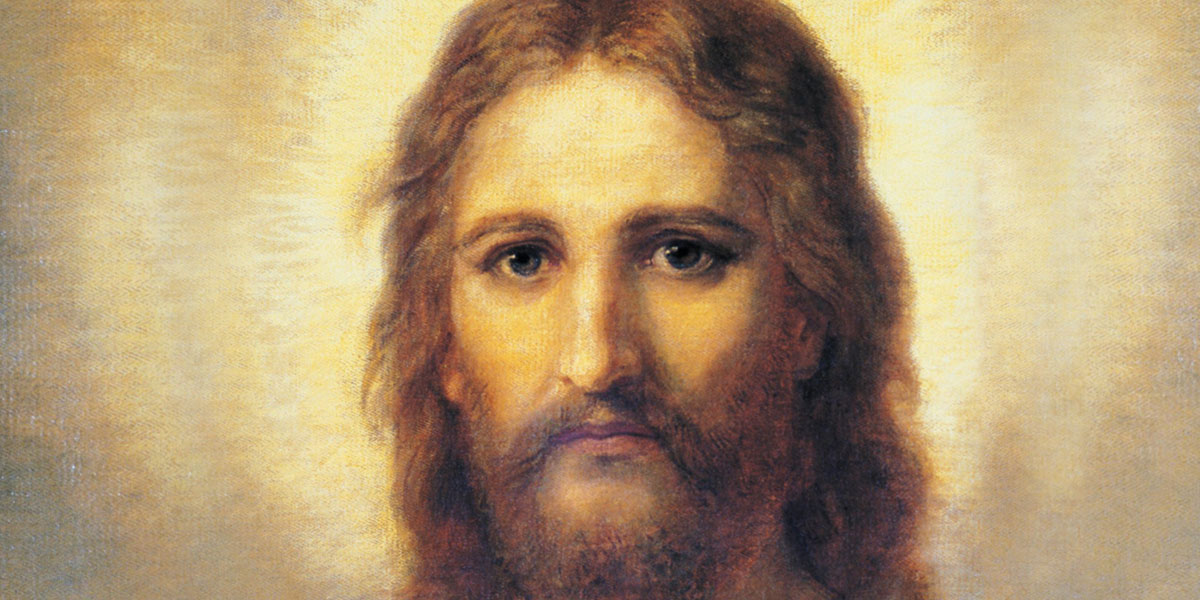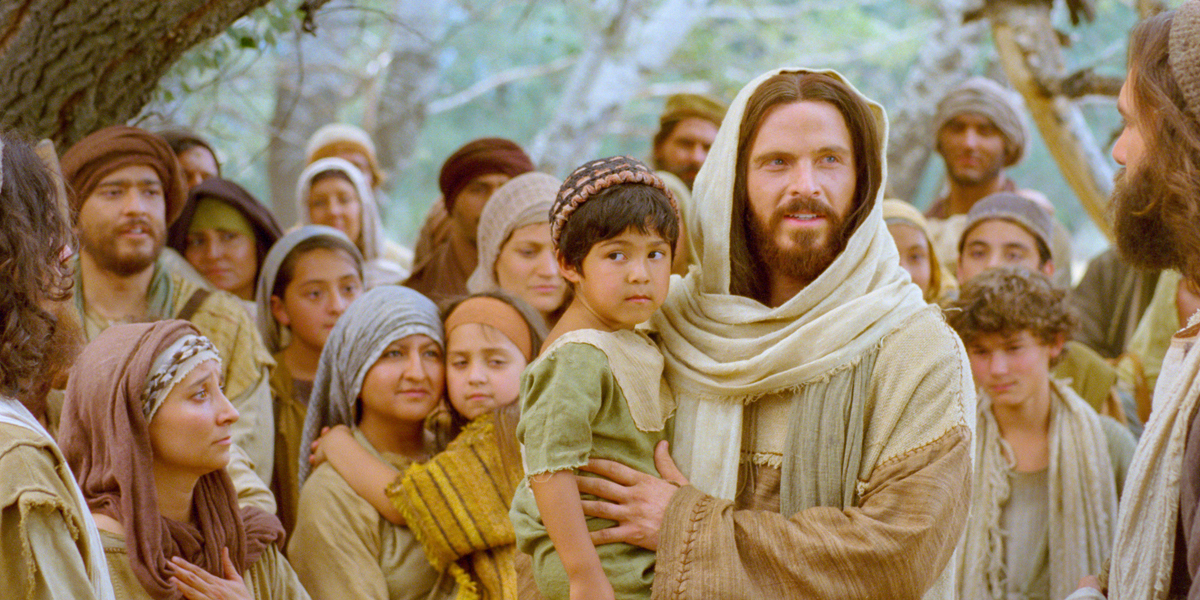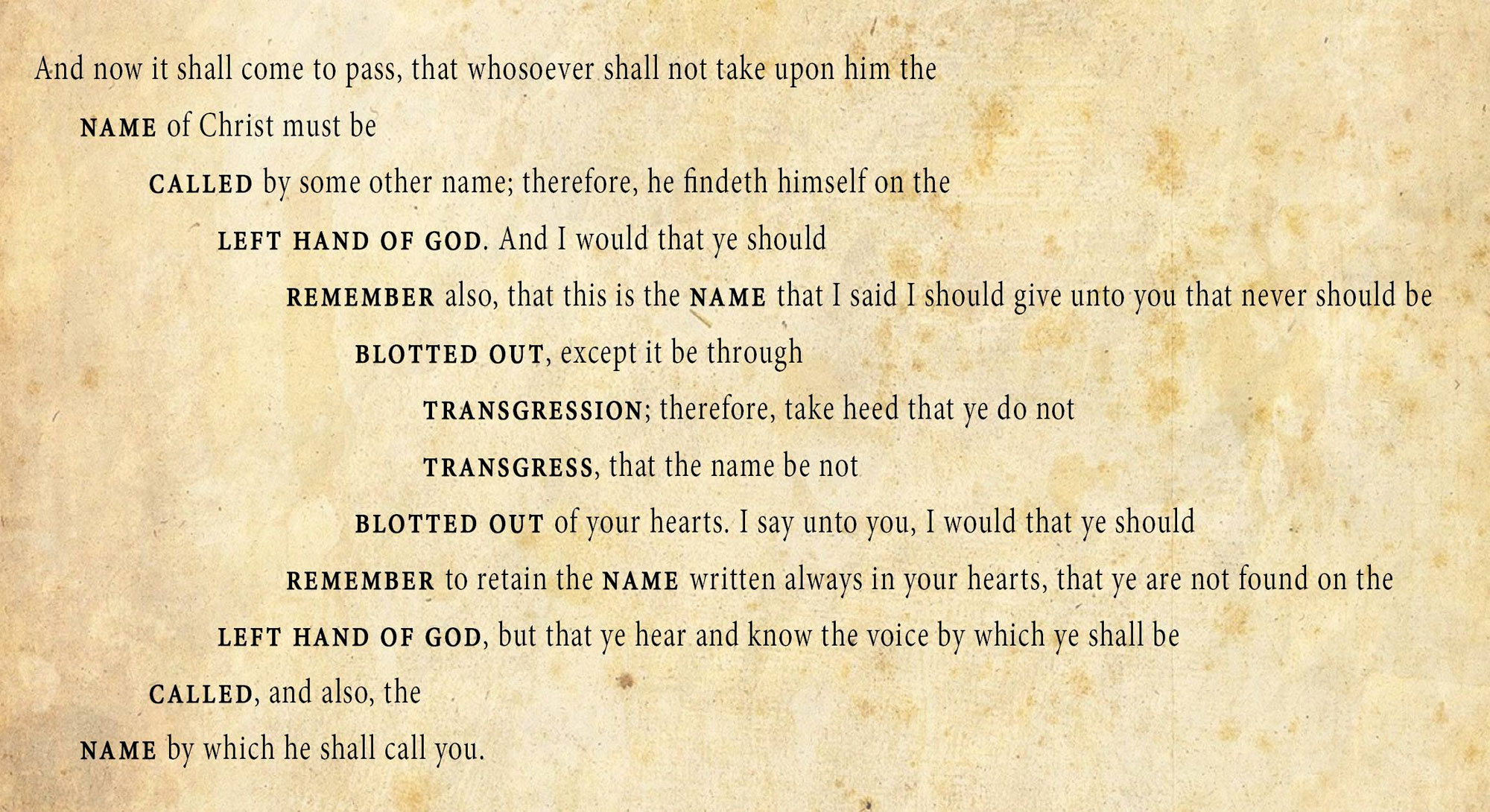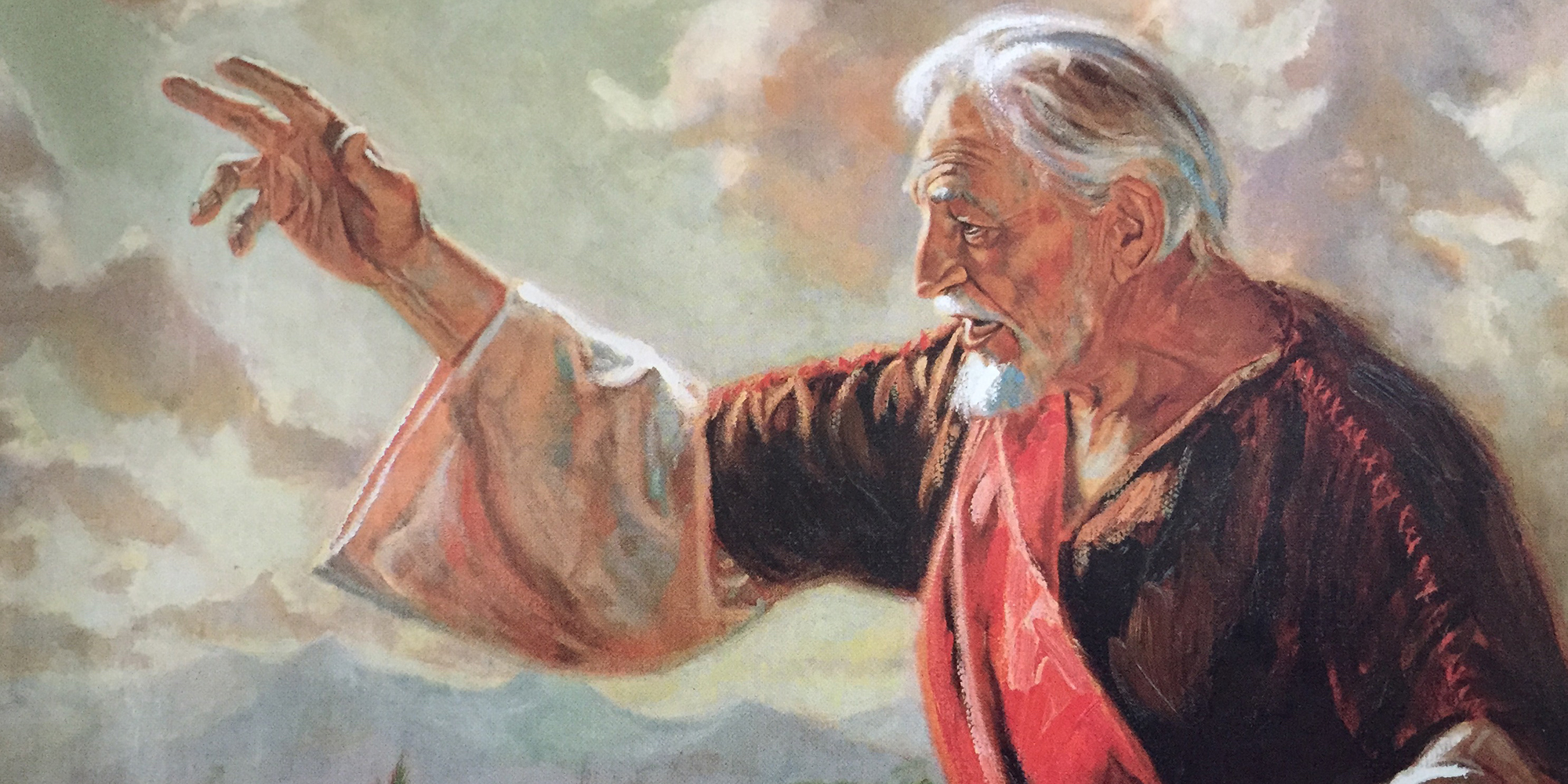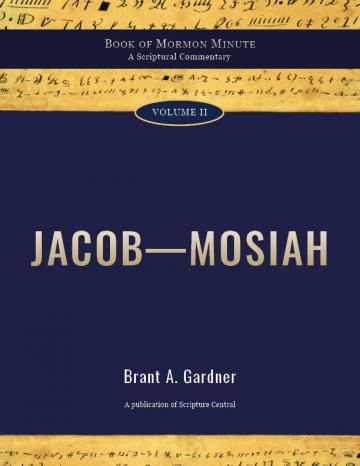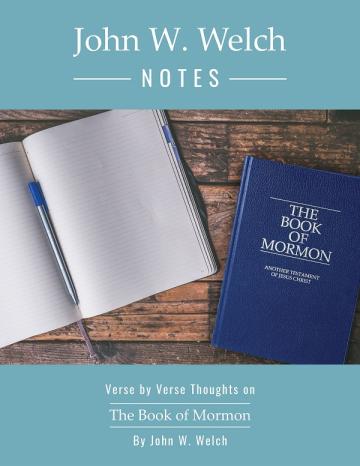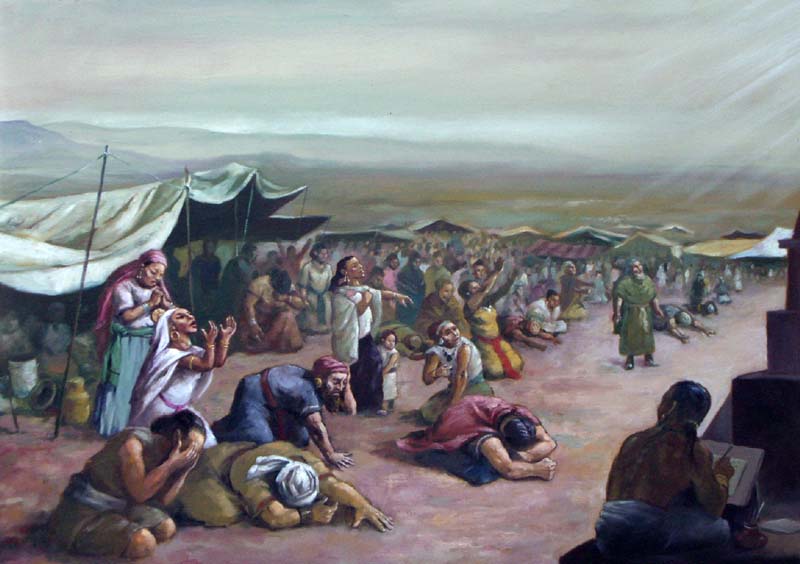You are here
Book of Mormon Central is in the process of migrating to our new Scripture Central website.
We ask for your patience during this transition. Over the coming weeks, all pages of bookofmormoncentral.org will be redirected to their corresponding page on scripturecentral.org, resulting in minimal disruption.
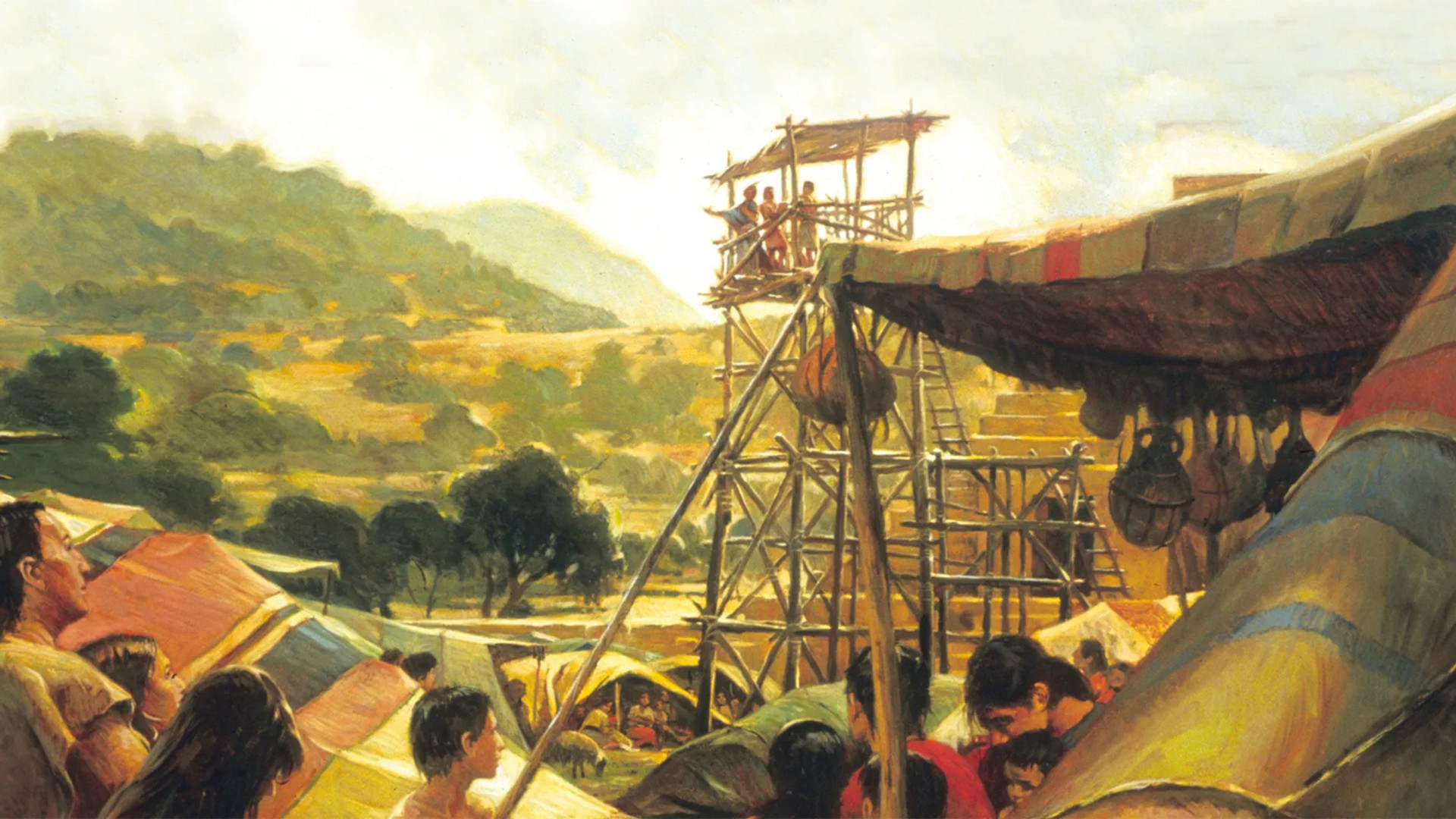
Mosiah 4–6
Scripture Central Videos
Watch videos from Gospel scholars and teachers to learn more about these Book of Mormon passages.
Other Creator Videos
KnoWhys
Evidences
Commentary
Book of Mormon Minute is a commentary series made especially for the free ScripturePlus app, which features insights from Book of Mormon scholar Brant A. Gardner. John W. Welch's notes for Come, Follow Me are also available for free.
John W. Welch, General Editor
Reading Plan
Structure your personal scripture study by following a 15-minute, day-by-day plan. Each day's assignment includes the required scripture passages from the Come, Follow Me curriculum, as well as suggestions for additional resources to bring context and understanding to your study. For the best experience, use our Reading Plan in the free ScripturePlus app! You can track your progress and have access to the best resources.
Monday
- Scripture: Mosiah 4:1–8
- Commentary: Remember Your Nothingness Compared with the Great Goodness of God
- KnoWhy: Why Does King Benjamin Emphasize the Blood of Christ?
-
Additional Study
- Commentary: The People Fell to the Earth
- Commentary: The People Cried Out with One Voice
- Commentary: Mosiah 4:4-7
- KnoWhy: Where Did Joseph Smith Get His Doctrinal Ideas About Christ?
Tuesday
- Scripture: Mosiah 4:9–13
- Commentary: Instructions to Believe in God
- Evidence: Covenant Renewal Formula
-
Additional Study
- Commentary: Retaining a Remission of Sins
- Commentary: Mosiah 4:8-10
- KnoWhy: How Did King Benjamin Teach His People to Trust God More?
Wednesday
- Scripture: Mosiah 4:14–30
- Commentary: Mosiah 4:17-19
- Commentary: Mosiah 4:20-21
- Commentary: Mosiah 4:22-25
-
Additional Study
- Commentary: Give Freely So That You Can Be Freely Forgiven
- Commentary: Do Not Run Faster Than We Have Strength
- Commentary: King Benjamin Expected His People to Commit His Words to Memory
- Evidence: Benjamin’s Speech (Literary Influence)
- KnoWhy: How Can the Book of Mormon Help Saints Live the Law of Consecration?
Thursday
- Scripture: Mosiah 5:1–5
- Commentary: A Tribute to a Great Leader
- Evidence: Benjamin's Masterful Oration
-
Additional Study
- Commentary: No More Desire to Do Evil
- Commentary: Mosiah 5:1-2
Friday
- Scripture: Mosiah 5:6–15
- Commentary: Why Do We Serve?
- KnoWhy: Why Is the Presence of Chiasmus in the Book of Mormon Significant?
-
Additional Study
- Commentary: The Nephites All Became the Children of Christ
- Commentary: If We Do Not Serve God, Our Names Will Be Blotted Out
- Commentary: What Does "Seal You His" Mean?
- Commentary: Mosiah 5:13-15
- Evidence: Chiasmus in Mosiah 5:10–12
- KnoWhy: Why Did King Benjamin Say That His People Would be Sons and Daughters at God’s Right Hand?
Saturday
- KnoWhy: How Does Christ “Seal You His”?
- Additional Study
Sunday
- Scripture: Mosiah 6:1–7
- Commentary: Names Were Taken of Those Who Entered the Covenant
- KnoWhy: Why Were Benjamin and Mosiah Such Beloved and Effective Leaders?
-
Additional Study
- Commentary: Mosiah 6:1-2
- Commentary: Mosiah 6:3
- Commentary: Mosiah 6:4-7
- Evidence: Mathematically Consistent Chronology
Additional Resources
Explore art, charts, and more.
Images
Charts
- Life Spans of Mosiah's Lineage
- Nephite and Lamanite Kings
- Key Doctrinal Chapters: Mosiah–Alma
- Book of Mormon Covenant Language
- King Benjamin's Coronation of Mosiah
- Three Steps in Benjamin's Logic on Service
- Overview of Benjamin's Speech
- Benjamin's Themes Related to the Israelite New Year
- Benjamin's Themes Related to the Day of Atonement
- Benjamin's Themes Related to the Feast of Tabernacles
- Benjamin's Themes Related to Sabbatical and Jubilee Years
- Treaty–Covenant Pattern in the Old Testament and Benjamin's Speech
- Benjamin's and Mosiah's Covenant Ceremonies Compared with Old Testament Rituals
- Elements Found in Great Farewell Addresses
- How Do You Say "Law" in Hebrew?
- Benjamin and the Law of the King
- Chiasmus in Mosiah 5:10–12
- Metals in the Book of Mormon
- Benjamin's Plea
- Whose Words Are Found in the Book of Mormon?
- Number of Pages in Books of the Book of Mormon
- Average Number of Pages Covering One Nephite Year
- Nephite Books Compared by Length and Years Covered
- Nephite Books Listed Chronologically
- Names Used for Christ by Major Book of Mormon Authors
- Names and Concepts Associated with Christ by Major Book of Mormon Authors
- Number of Names Used for Christ by Major Book of Mormon Authors
- Number of Names for Christ Used Exclusively by Individual Authors
- Ten Essential Features of Book of Mormon Geography
- Geographical Names Listed Alphabetically
- Geographical Names Listed by Scripture Reference
Bibliography
Mosiah 4
Baker, LeGrand L., and Stephen D. Ricks. “King Benjamin: The Drama’s Sacral Kingship is about Being a Child of God.” In Who Shall Ascend into the Hill of the Lord?: The Psalms in Israel’s Temple Worship in the Old Testament and in the Book of Mormon, 475–488. 2nd ed. Provo, UT: Eborn Books, 2011.
Mosiah 4:1
Welch, John W., and Greg Welch. “People to Whom Jesus Christ or the Angel of the Lord Appeared.” In Charting the Book of Mormon: Visual Aids for Personal Study and Teaching. Provo, UT: Foundation for Ancient Research and Mormon Studies, 1999, chart 41.
Mosiah 4:1–4
Hopkin, Shon D. “Preparing Students to Receive Revelation: Insights from the Book of Mormon,” Religious Educator 13, no. 2 (2012): 73–87.
Mosiah 4:9–10
Welch, John W., and Greg Welch. “Benjamin's Plea.” In Charting the Book of Mormon: Visual Aids for Personal Study and Teaching. Provo, UT: Foundation for Ancient Research and Mormon Studies, 1999, chart 173.
Mosiah 4:30
Midgley, Louis C. “’O Man, Remember, and Perish Not’ (Mosiah 4:30).” In Reexploring the Book of Mormon, edited by John W. Welch, 127-129. Provo, UT/Salt Lake City: FARMS/Deseret Book, 1992.
Tvedtnes, John A. “The Thoughts and Intents of the Heart.” In The Most Correct Book: Insights from a Book of Mormon Scholar, 170–172. Salt Lake City: Cornerstone Publishing, 1999.
Mosiah 5
Welch John W. “Benjamin's Covenant as a Precursor of the Sacrament Prayers.” In King Benjamin's Speech: “That Ye May Learn Wisdom”, edited by John W. Welch and Stephen D. Ricks, 295-315. Provo, UT: Foundation for Ancient Research and Mormon Studies, 1998.
Mosiah 5:2
Condie, Spencer J. “A Mighty Change of Heart.” Ensign 23, no. 11 (1993): 15–17.
Mosiah 5:7–10
Bowen, Matthew L. “Becoming Sons and Daughters at God’s Right Hand: King Benjamin’s Rhetorical Wordplay on His Own Name.” Journal of the Book of Mormon and Other Restoration Scripture 21, no. 2 (2012): 2-13.
Ray, Brian K. “Adoption and Atonement: Becoming Sons and Daughters of Christ.” Religious Educator 6, no. 3 (2005): 129-136.
Szink, Terry L., and John W. Welch. “On the Right or Left: Benjamin and the Scapegoat.” In Pressing Forward with the Book of Mormon: The FARMS Updates of the 1990s, edited by John W. Welch and Melvin J. Thorne, 107-109. Provo, UT: FARMS, 1999.
Mosiah 5:10–12
Welch, John W., and Greg Welch. “Chiasmus in Mosiah 5:10–12.” In Charting the Book of Mormon: Visual Aids for Personal Study and Teaching. Provo, UT: Foundation for Ancient Research and Mormon Studies, 1999, chart 131.
Welch John W. “Parallelism and Chiasmus in Benjamin's Speech.” In King Benjamin's Speech: “That Ye May Learn Wisdom”, edited by John W. Welch and Stephen D. Ricks, 315-410. Provo, UT: Foundation for Ancient Research and Mormon Studies, 1998.
Welch, John W. “The Discovery of Chiasmus in the Book of Mormon: Forty Years Later.” Journal of Book of Mormon Studies 16, no. 2 (2007): 74–87, 99.
Mosiah 5:15
Gee, John. “Book of Mormon Word Usage: ‘Seal You His.’” Insights: A Window on the Ancient World 22, no. 1 (2002): 4.
Mosiah 6
Mosiah 6:2
Welch, John W. “Democratizing Forces in King Benjamin’s Speech.” In Pressing Forward with the Book of Mormon: The FARMS Updates of the 1990s, edited by John W. Welch and Melvin J. Thorne, 110-126. Provo, UT: FARMS, 1999.
Mosiah 6:6
Welch, John W., and Greg Welch. “How Do You Say "Law" in Hebrew?.” In Charting the Book of Mormon: Visual Aids for Personal Study and Teaching. Provo, UT: Foundation for Ancient Research and Mormon Studies, 1999, chart 119.



















